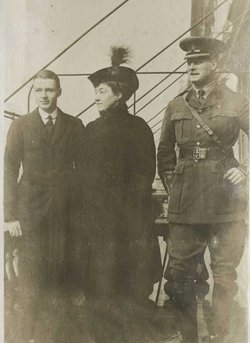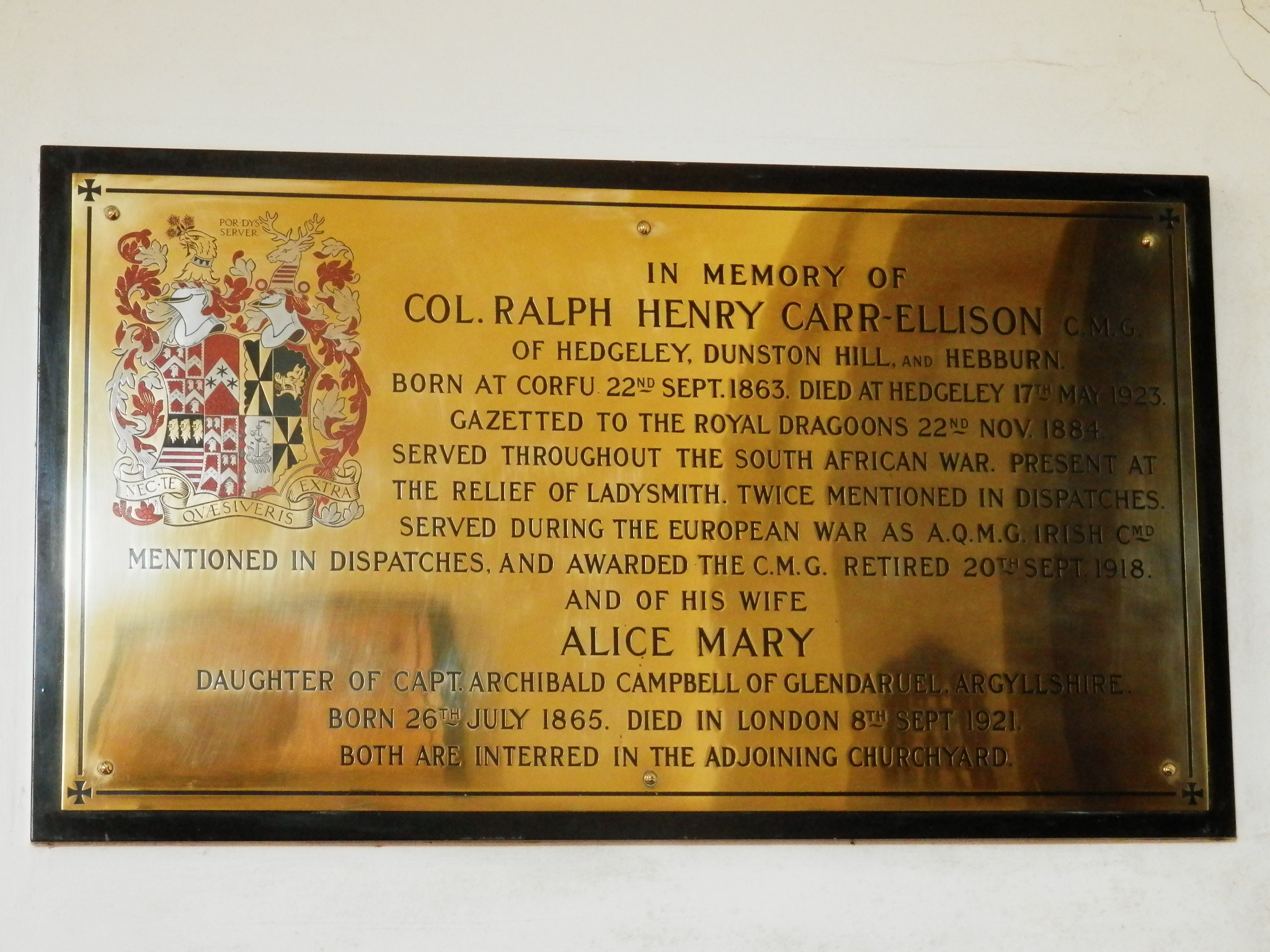They were married at St. Peter's Parish Church, Cranley Gardens, London, on 28 February 1893. Ralph was stationed in York at the time of their marriage, and the couple lived there for a time, before Ralph was posted to Ireland.
Their only child, John (Jock) Campbell Carr-Ellison, was born on 25 September 1897, at 4 Walton Street, London.
During the First World War, Alice organised working parties at her home in 41 Princes Gate, London, making articles for those at the Front. When Ralph and Alice moved to Dublin she became involved in many welfare committees to improve conditions for soldiers and their families. She organised food and tobacco parcels to be sent to the men at the front and those in prisoner of war camps. She also formed a workshop for disabled soldiers, where they could make artificial limbs, giving them the chance to earn a wage and support their families.
In 1917, Alice did even more for the national war effort by turning Dunston Hill House, Gateshead, into an after-care home, catering for 45 disabled soldiers and sailors at a time. The house was in a peaceful, countryside location, but was close enough to Newcastle to make it accessible.
In September 1921, at the age of fifty-five, Alice died of pneumonia at her home in London. Her cremation took place at Golder's Green, and the ashes were interned in Eglingham churchyard on 14 September, after a memorial service that was attended by family, friends, local dignitaries and estate tenants from Northumberland and Durham. Mr. G. Hemming, the Head Gardener at Hedgeley, lined the burial vault with laurel and flowers from the gardens of Hedgeley Hall.
They were married at St. Peter's Parish Church, Cranley Gardens, London, on 28 February 1893. Ralph was stationed in York at the time of their marriage, and the couple lived there for a time, before Ralph was posted to Ireland.
Their only child, John (Jock) Campbell Carr-Ellison, was born on 25 September 1897, at 4 Walton Street, London.
During the First World War, Alice organised working parties at her home in 41 Princes Gate, London, making articles for those at the Front. When Ralph and Alice moved to Dublin she became involved in many welfare committees to improve conditions for soldiers and their families. She organised food and tobacco parcels to be sent to the men at the front and those in prisoner of war camps. She also formed a workshop for disabled soldiers, where they could make artificial limbs, giving them the chance to earn a wage and support their families.
In 1917, Alice did even more for the national war effort by turning Dunston Hill House, Gateshead, into an after-care home, catering for 45 disabled soldiers and sailors at a time. The house was in a peaceful, countryside location, but was close enough to Newcastle to make it accessible.
In September 1921, at the age of fifty-five, Alice died of pneumonia at her home in London. Her cremation took place at Golder's Green, and the ashes were interned in Eglingham churchyard on 14 September, after a memorial service that was attended by family, friends, local dignitaries and estate tenants from Northumberland and Durham. Mr. G. Hemming, the Head Gardener at Hedgeley, lined the burial vault with laurel and flowers from the gardens of Hedgeley Hall.
Family Members
Sponsored by Ancestry
Advertisement
See more Carr-Ellison or Campbell memorials in:
- St Maurice Churchyard Carr-Ellison or Campbell
- Eglingham Carr-Ellison or Campbell
- Northumberland Unitary Authority Carr-Ellison or Campbell
- Northumberland Carr-Ellison or Campbell
- England Carr-Ellison or Campbell
- Find a Grave Carr-Ellison or Campbell
Records on Ancestry
-
Geneanet Community Trees Index
-
London, England, Church of England Marriages and Banns, 1754-1938
-
UK and Ireland, Newspapers.com™ Marriage Index, 1800s-1999
-
England & Wales, National Probate Calendar (Index of Wills and Administrations), 1858-1995
-
London, England, Church of England Births and Baptisms, 1813-1923
Sponsored by Ancestry
Advertisement








